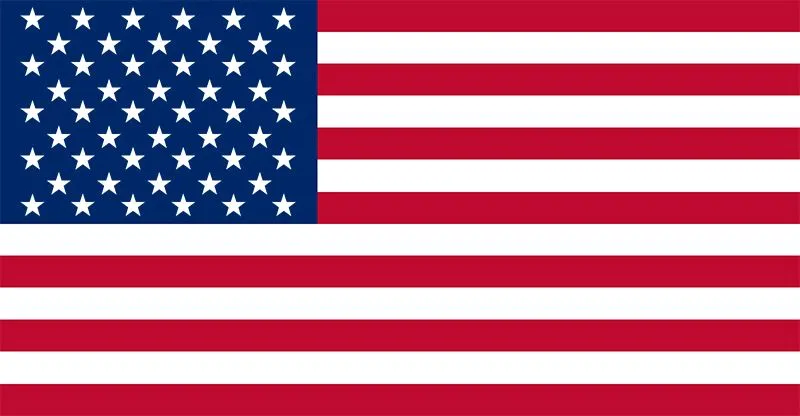
Made in America
Get Connected With



Email Us
sale@abrvpartsacc.com
Call Us
+1 (626) 448-2100
Made in America
Get Connected With




In today's world, effective water plumbing is essential for every homeowner, as it not only ensures a reliable supply of clean water but also plays a significant role in maintaining the overall health and efficiency of a home. According to the U.S. Environmental Protection Agency, household leaks can waste nearly 1 trillion gallons of water annually, highlighting the importance of mastering water plumbing techniques to prevent such loss. Moreover, a report by the American Society of Plumbing Engineers indicates that proper plumbing systems can reduce water usage by up to 30%, contributing to both environmental sustainability and lower utility bills. By understanding the fundamental aspects of water plumbing, homeowners can avoid costly repairs, conserve water, and enhance their home's value. This guide will delve into essential tips and tricks that empower homeowners to take control of their plumbing systems efficiently and effectively.

Understanding your home's plumbing system is crucial for any homeowner. The key components include pipes, fixtures, valves, and appliances. Pipes serve as the veins of your plumbing system, transporting water throughout your home. It's important to know what types of pipes are in your home; for example, PVC is commonly used for drain lines, while copper is often used for supply lines. Regularly checking for leaks in these areas can save you from significant water damage and costly repairs.
Fixtures, such as sinks, toilets, and showers, require regular maintenance to ensure they function properly. For instance, drippy faucets can usually be fixed by replacing a worn-out washer. An easy tip for homeowners is to keep a basic plumbing toolkit handy, including items like pliers and a plunger, to quickly address minor issues before they escalate. Additionally, familiarize yourself with your home's shut-off valves—knowing where these are located can be a lifesaver in emergencies, allowing you to quickly stop the flow of water during a plumbing crisis.
Lastly, water heaters are essential for providing hot water throughout your home. Understanding how to maintain your water heater, such as flushing it annually to remove sediment build-up, can significantly extend its lifespan. Taking these steps not only promotes the efficiency of your plumbing system but also gives you peace of mind in managing your home's plumbing effectively.

Homeowners often face a range of plumbing problems that can lead to frustration and costly repairs. One of the most common issues is clogged pipes, especially in areas where garbage disposals are used. Many homeowners are unaware of what can and cannot go down the disposal, leading to blockages. To tackle a clogged disposal, it’s crucial to turn off the power and check for foreign objects, as well as to avoid flushing grease, food scraps, or fibrous vegetables down the drain.
Another prevalent issue is leaks, which can result in mold growth and structural damage if not addressed promptly. Homeowners should regularly inspect their plumbing systems, especially after heavy rains, to catch any leaks early. In some cases, like the recent situation in the Somerset Park community, plumbing failures can lead to serious consequences, prompting cities to intervene for repairs. Understanding the limitations of DIY plumbing repairs is equally important, as attempting to fix significant issues without professional help may worsen the situation or cause additional damage. Homeowners should be equipped with knowledge about these common problems and know when to call in a professional for help.
| Problem | Symptoms | DIY Fix | When to Call a Pro |
|---|---|---|---|
| Leaky Faucet | Dripping sound, water pooling | Replace washer or O-ring | If it continues to leak |
| Clogged Toilet | Slow flushing, overflow | Use a plunger or toilet auger | For persistent clogs |
| Leaky Pipes | Water stains, damp areas | Use pipe tape or sealant | If leaks are extensive |
| Running Toilet | Constant noise, water cycling | Adjust the flapper or float | If it won’t stop running |
| Water Heater Issues | No hot water, strange noises | Check thermostat and pressure relief valve | If water leaks or it won’t heat |
When it comes to DIY plumbing repairs, having the right tools can make all the difference. Every homeowner should consider investing in a basic set of essential tools that can handle a variety of plumbing issues. Based on expert recommendations and common home improvement practices, here are the top tools that should be in every homeowner's toolkit:
Homeowners often underestimate the importance of regular plumbing maintenance, yet studies show that a well-maintained plumbing system can last up to 15% longer than one that is neglected. According to the American Society of Home Inspectors, nearly 60% of homeowners have experienced some form of plumbing issue in their lifetime, which often results in costly repairs and extensive downtime. Regular maintenance practices such as flushing water heaters, inspecting for leaks, and cleaning aerators can significantly mitigate these issues.
Implementing simple checks and routines can preserve your plumbing system's integrity. For instance, the Environmental Protection Agency recommends examining your home’s plumbing for leaks every year, as even a small leak can waste over 10,000 gallons of water annually. Moreover, a report by the Plumbing Manufacturers International reveals that nearly 80% of plumbing failures result from inadequate maintenance. By investing just a few hours annually in plumbing upkeep, homeowners can enhance their system’s efficiency, lower water bills, and ultimately extend its lifespan substantially.
This bar chart illustrates the impact of various maintenance tips on extending the lifespan of plumbing systems, showing potential improvements based on effective practices.
 Saving water not only benefits the environment but can also significantly decrease your utility bills. One simple way to enhance your efficiency is by fixing leaks promptly. A dripping faucet or leaky toilet can waste gallons of water daily. Regularly checking and repairing these leaks can lead to substantial savings over time. Additionally, consider installing low-flow fixtures. These modern options, including showerheads and faucets, can drastically reduce water consumption without sacrificing water pressure or comfort.
Saving water not only benefits the environment but can also significantly decrease your utility bills. One simple way to enhance your efficiency is by fixing leaks promptly. A dripping faucet or leaky toilet can waste gallons of water daily. Regularly checking and repairing these leaks can lead to substantial savings over time. Additionally, consider installing low-flow fixtures. These modern options, including showerheads and faucets, can drastically reduce water consumption without sacrificing water pressure or comfort.
Another effective strategy to save water is to be mindful of your usage habits. For instance, turning off the tap while brushing your teeth can save several gallons per day. Taking shorter showers and running the dishwasher only when it's full are practical changes that contribute to lower water bills. Furthermore, investing in a rain barrel to collect rainwater can provide an excellent source for watering your garden, reducing your reliance on the municipal water supply. These small adjustments and mindful practices collectively foster water conservation, helping you save up to 30% on your water bill.





